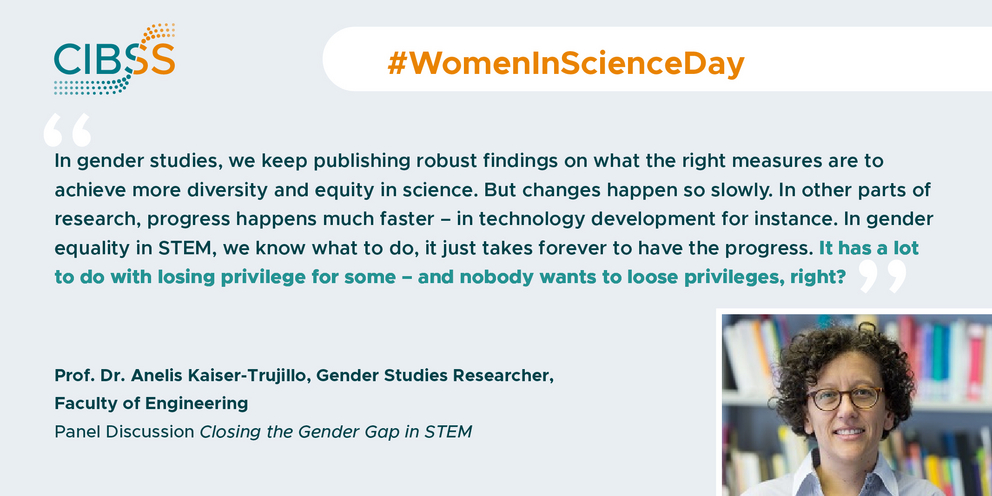

Women in Science Day at CIBSS

“’A ton of feathers is still a ton’ was one of the most memorable quotes”, Deepti Prasad, doctoral researcher at Spemann Graduate School of Biology and Medicine noted after viewing the documentary “Picture a Scientist”. The film not only portrays accounts of explicit harassment of women scientists, but also argues that the daily barriers and biases women are subjected to are an equally important reason for the ‘leaky pipeline’, the phenomenon of disproportionate attrition of female scientists from higher career levels in research. Deepti Prasad was one of the six panelists from the University of Freiburg who discussed the film during an online event on the February 10, 2021. CIBSS invited students and researchers to exchange views on the documentary and the topic of gender inequality in STEM after opening a screening of the film for members of the university.

Most panelists agreed: They were not surprised by the film’s content but acknowledged that it nonetheless powerfully delivers the message that gender inequality remains a major issue in STEM. After sharing their impressions, Dr. Aniela Knoblich, head of the University of Freiburg’s Office of Gender and Diversity and Prof. Dr. Anelis Kaiser, Professor for Gender Studies in STEM, as well as panel participants from the CIBSS Equal Opportunity and Diversity committee, Dr. Anne-Kathrin Classen and Dr. Peter Walentek, discussed different ways in which a more diverse and equitable science can be achieved and what barriers must still be overcome. Psychologist Prof. Dr. Andrea Kiesel from the Cluster of Excellence livMatS shared her take on the importance of addressing implicit biases.

Issues raised by the audience emphasized the importance of the concept of intersectionality: how other additional discrimination because of ethnicity, sexual orientation, socioeconomic background or other factors further raises the barriers for these women, and can lead to their loss from the scientific system thereby magnifying the problem of underrepresentation. One aspect that many panelists emphasized was the importance of increasing diversity in science: diversity brings new perspectives and different ways of thinking and approaching problems, which are key to scientific progress and innovation.



